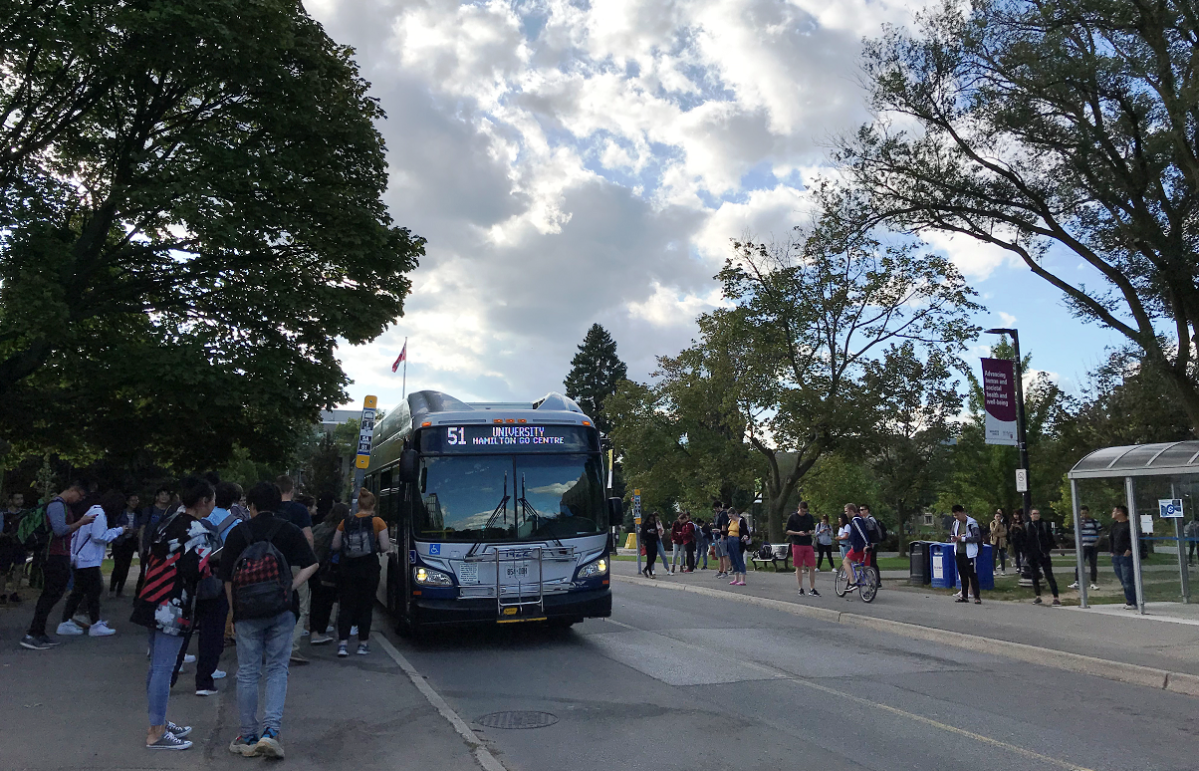Researchers from 10 colleges and universities in the Greater Toronto and Hamilton area are collaborating on a massive three-year study that will examine how post-secondary students get around.

Mohawk College and McMaster University are taking part in the research program called StudentMoveTO, which builds on a 2015 study out of Toronto’s universities.
About 600,000 students commute to and from post-secondary schools in the GTHA region on a daily basis, according to a media release from the research team.
Allison Maxted, coordinator of Campus Sustainability Outreach at Mohawk College, said they typically conduct annual transportation audits, but said this is a much more comprehensive study of how students travel.
“Going beyond looking at ‘how do you get here’, to the impact that it can have on students’ well-being,” said Maxted, explaining the study’s objective. “And trying to identify more systemically across the region, what are some of the challenges and experiences that students have getting to school, as well as other places.”
She said many students are commuting within Hamilton, but a lot of them are also travelling from other regions, including Peel and Halton.
“The way that housing prices and everything are going, it’s not as simple as where the college or university is located,” said Maxted.
“We know that a lot of students are actually travelling across multiple transportation systems and up to a couple of hours to get to and from their schools.”
- Life in the forest: How Stanley Park’s longest resident survived a changing landscape
- ‘Love at first sight’: Snow leopard at Toronto Zoo pregnant for 1st time
- Buzz kill? Gen Z less interested in coffee than older Canadians, survey shows
- Carbon rebate labelling in bank deposits fuelling confusion, minister says
Darren Scott, a geography and earth sciences professor and collaborator on behalf of McMaster University for the research program, says it’s the biggest study of its kind in the world.
“All the technology behind this, it’s mindblowing, actually,” said Scott.
The study is kicking off with a survey that launches on Oct. 1 and wraps up in mid-November. That survey will ask detailed questions about different mobility options, travel attitudes and motivations, drawing information from the use of a one-day travel diary.
“We know in travel behaviour research that attitudes often dictate mode choice, so we’re trying to see how those attitudes influence the student mode choice.”
Scott added that students who go to school in Toronto have different travel experiences and needs, with different modes of transportation available to them, and those who attend school in Hamilton may experience more issues like overcrowding on buses.
“That’s part of the reason for expanding the survey to all the community colleges, as well as the universities in the GTHA,” said Scott.
“So that way you can look at and compare differences between those places based on the spatial location. For example, how far are students commuting, even to McMaster? What type of modes are they taking to get here? I know a lot of students are using GO transit, commuting from Mississauga, from Brampton, etc.”
One of the goals of the three-year program is to gather data that will help policy makers with transportation and transit-related decisions.
It also aims to improve quality of life for students who may have to do a lot of travelling and miss out on events or activities, or may need to plan their class schedule based on their commute. Scott said a lengthy commute may even impact a student’s academic performance.
WATCH: (Sept. 5, 2019) Akapo updates Peterborough transit

Maxted said they also want to encourage discussion and debate about students’ transportation experiences.
“We’re looking at understanding what the barriers are for students getting here and being able to have productive and fruitful lives, and how transportation helps or hinders that,” said Maxted.
“Being able to identify through this survey, what are the barriers and issues that they’re experiencing across the region, and being able to incorporate that into campus planning, as well as regional and local transportation planning.”
Both Mohawk and McMaster will be advertising the study to students starting Wednesday.
Supported by a Social Sciences and Humanities Research Council grant, it’s also being conducted in partnership with Metrolinx, the province’s transportation planning agency, and the City of Toronto, as well as several community organizations.
Other schools taking part include Ryerson University, University of Toronto, York University, Sheridan College, Ontario Tech University, OCAD University, Centennial College and Durham College.




Comments